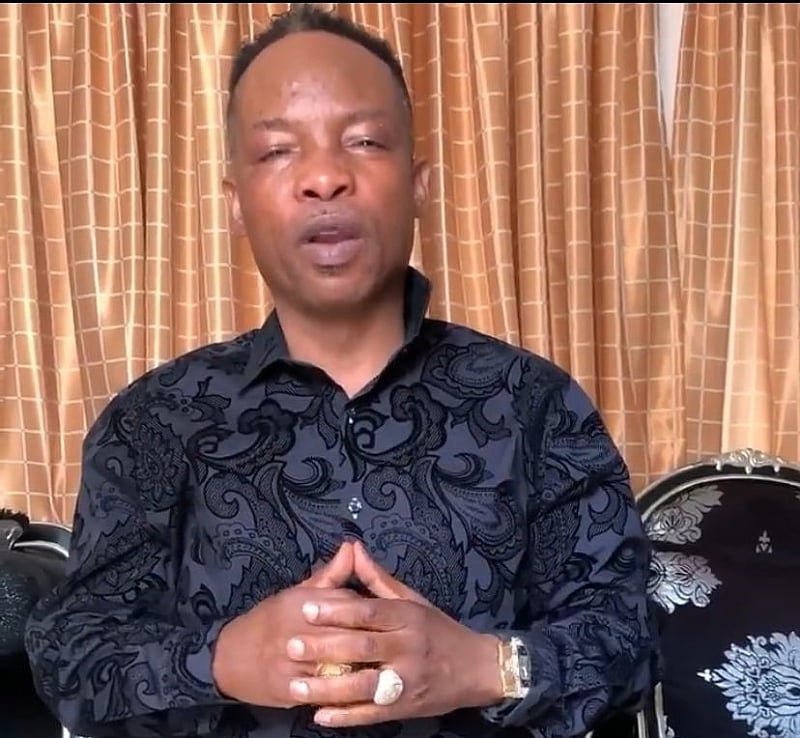Bishop Elisha Salifu Amoako, the founder and leader of Alive Chapel International, recently faced an emotional and challenging situation following a tragic accident that took the lives of two young girls. The accident occurred on October 12 in East Legon, involving his 16-year-old son, Elrad Salifu Amoako, who was driving a luxury white Jaguar F-Pace Sport without a valid driver’s license. The vehicle collided with an Acura utility vehicle, leading to a devastating fire that ultimately resulted in the unfortunate loss of the girls’ lives, who were trapped inside. This accident has not only shattered the families of the deceased but has also led to overwhelming grief for the Amoako family.
In the aftermath of this tragic event, Bishop Salifu Amoako publicly expressed his sorrow and remorse through an emotional apology. The Bishop demonstrated his deep empathy and contrition by going down on his knees, directly pleading with the families of the young girls for their mercy and understanding. His public plea highlighted the immense weight of responsibility he felt as a father and as a public figure in the face of such a harrowing incident. During this heartfelt moment, he encouraged the grieving families to find strength amidst their pain and emphasized the profound nature of loss, showcasing his own struggles to come to terms with the tragedy that had unfolded.
Bishop Salifu voiced his deep sorrow and sense of helplessness over the incident, candidly confessing how difficult it has been for him to process what has happened. The grief from the event left him in emotional turmoil, unable to fully articulate his feelings or make sense of the action that resulted in such dire consequences. His struggles with understanding the tragedy echo a common human experience of attempting to navigate complex emotions in the face of loss and regret, reinforcing the ecclesiastical theme of sorrow intertwined with a plea for divine comfort.
The Bishop recognized the pain suffered not only by the families of the deceased but also acknowledged the broader societal implications of the tragic accident. By highlighting the need for mercy and compassion, he underscored the human condition and the interconnectedness of grief. His appeal for the families to find solace in God’s strength serves as a reminder of the communal aspect of sorrow, where shared humanity calls for empathy towards one another in times of crisis. This public display of vulnerability emphasizes the importance of community support during catastrophic events.
In discussing the accident, Bishop Salifu acknowledged the gravity of the situation, particularly the irresponsibility that comes with young individuals driving without proper licenses and the consequences that can ensue. His reflections can be interpreted as a call for deeper conversations about road safety, responsible parenting, and the need for guidelines that can prevent similar tragedies in the future. By emphasizing these factors, he not only advocates for healing and strength for the bereaved families but subtly addresses a larger issue that affects many families in society.
Ultimately, the tragic accident serves as a painful reminder of the fragility of life and the complexities surrounding accountability and forgiveness. Bishop Salifu’s heartfelt plea encapsulates both the devastation felt by the families of the deceased and his struggles as a father facing the repercussions of his son’s actions. His public appeal for understanding compels onlookers to reflect on their own vulnerabilities and the importance of compassion in the wake of tragedy. The road ahead for both the bereaved families and the Amoako family will undoubtedly be filled with challenges as they seek healing and the ability to forge a path forward from this heartbreaking incident.














